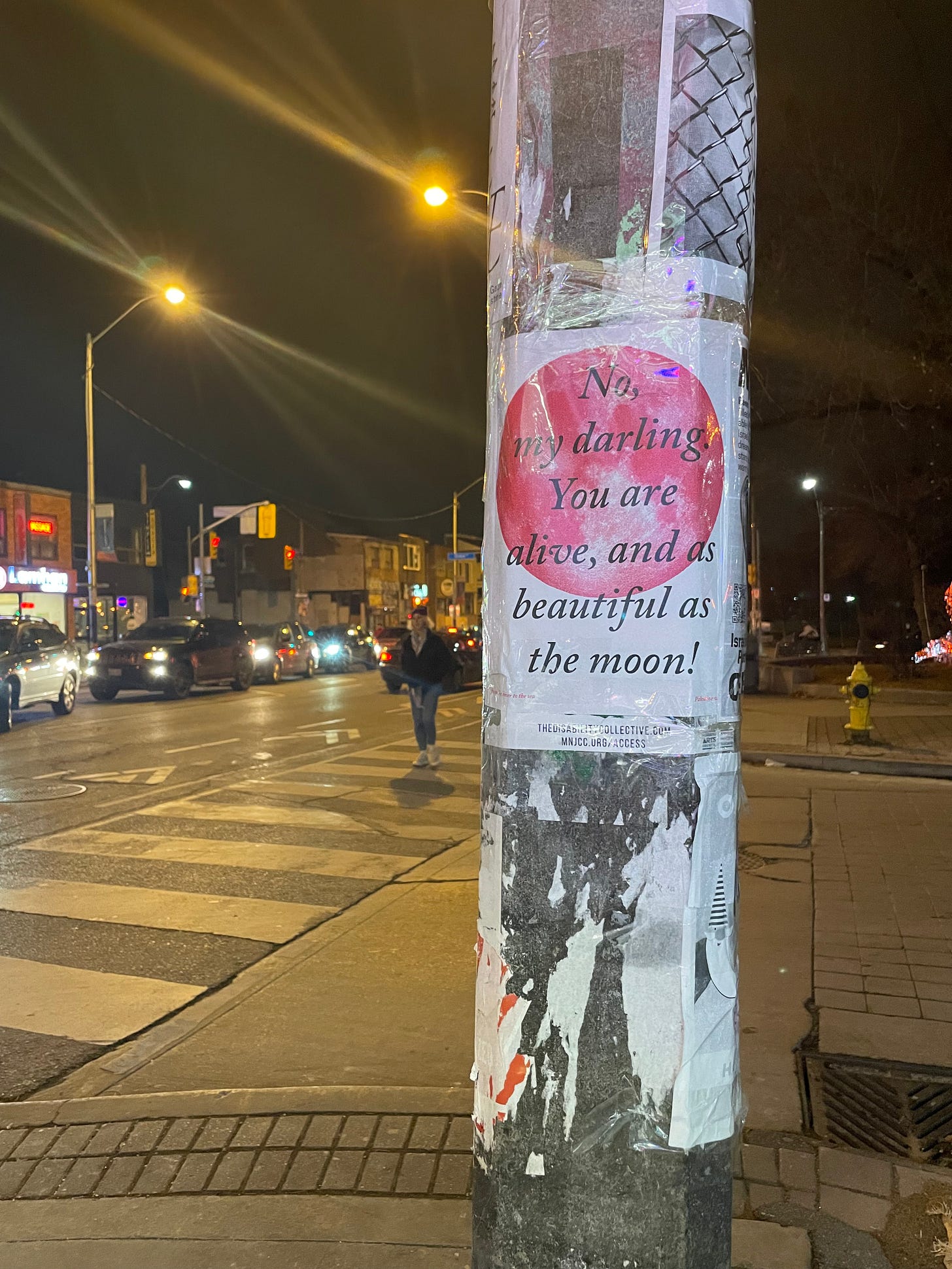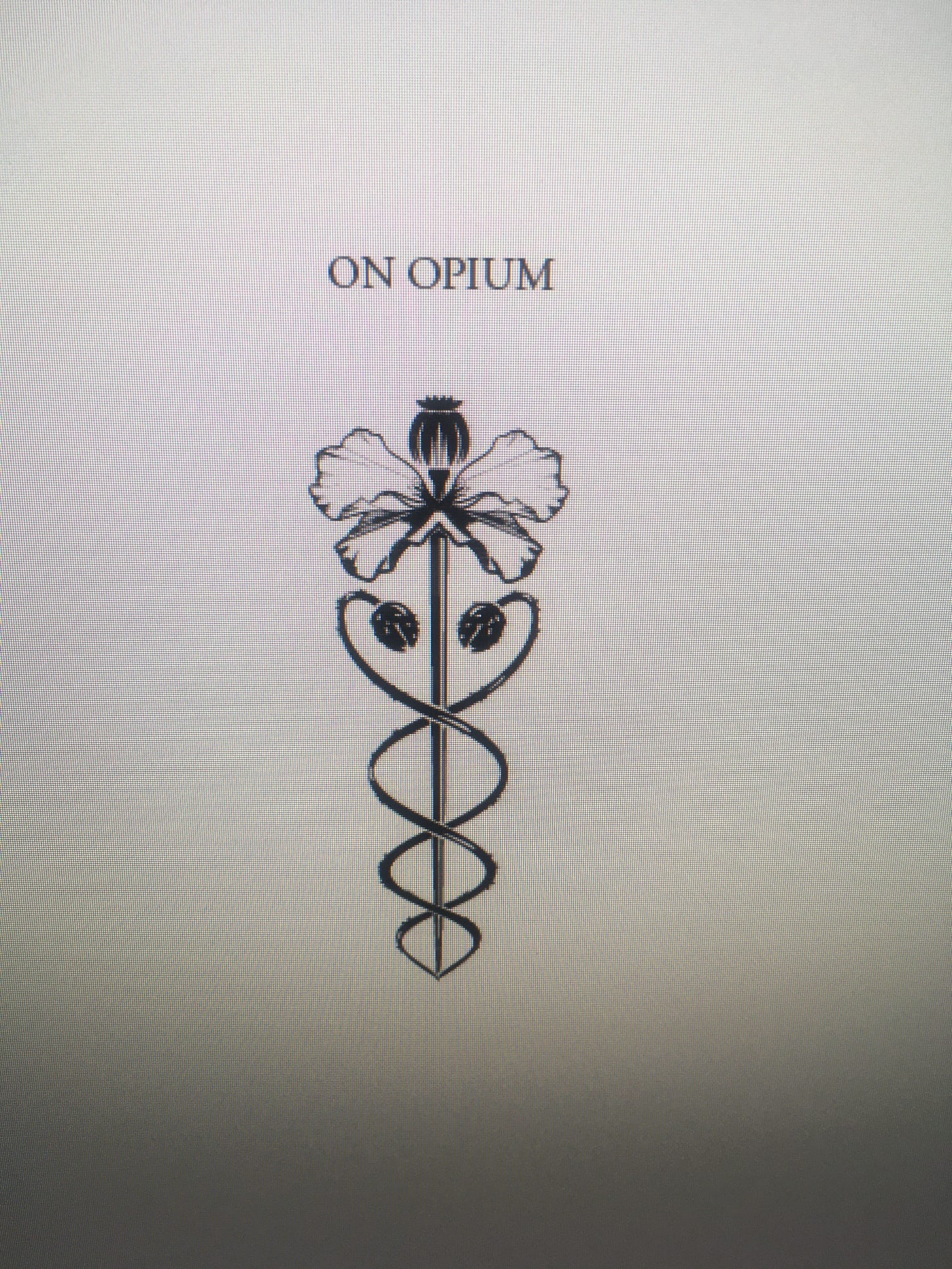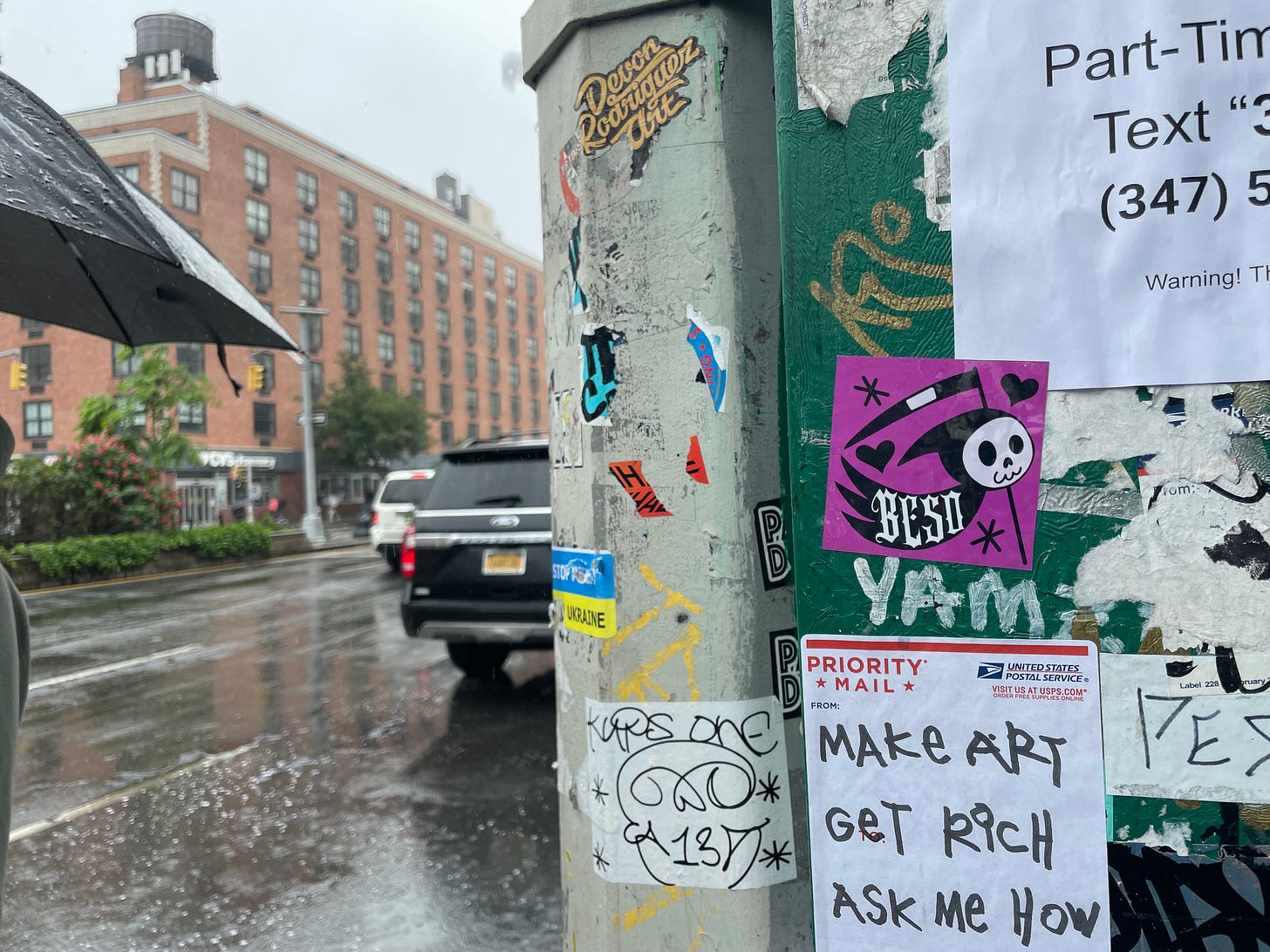Dear Gentle Readers,
hey there! It’s been a while—the longest pause since I started Live More Lives a year ago come February. If you’ve signed up in the last few weeks you’ll have missed the news: I’m moving to an occasional schedule for a few months—until April, at least—in order to do my very best to finish a novel that I’ve been working on for lo these many (many) moons. If you’ve been a paid subscriber, you still are—but you are not paying right now, as I’ve paused the subscription and won’t start it again until I resume a regular schedule. There’s plenty in the archives to enjoy and as they’ll still be coming now and then I invite you to please continue to share Live More Lives with your fiction-loving, experience-loving friends, as free subscriptions are still open for sign-ups.
I miss writing to you in a regular way and I miss exploring the intersection of fiction and experience, the theme of this newsletter and also of a very-slowly-in-progress book of essays currently called Dizzy Spells. However, I also welcome the ability to focus on journalism, which has been very busy for the past few months, and to let my mind wander and find its way back to the novel. For too long every time I am ready to sit down and write the novel (a thing I mean to do daily)1, I find that a looming deadline means I must instead write about writing it, or use it to decide on the theme for a Sunday essay on the way novels, in general, let us live more lives.
So for this short sabbatical of sorts, I am going to write to you less regularly and instead put that concentration towards getting the damn novel done. With my first small book and my second pretty long one, I put everything I had into them. I want to do that with this, my first novel.
2.3 million people, 40 per cent of them 15 years of age or under, have been under total siege for three months now
This is really the main important thing (well, this and the not-unrelated phenomenon of global heating, which is beyond critical). A genocide—oh FFS, call it what lets you sleep at night, I don’t care, but it’s collective punishment involving multiple and record-setting war crimes—of mostly children and women being crushed, starved, forcibly resettled, parched, sickened and blown to bits. What does this have to do with literature? As the writer Ben Ehrenreich put it, “Writers who are silent now: stay silent. May all words turn to ash in your mouths.”
The same goes for readers, we whose powers of empathy are lauded by some of the same big thinkers who have become apologists for war crimes, or by the same mega-bookseller who since 2005 has funded ‘lone soldiers’, encouraging foreign fighters to go to Israel, where they join an army that routinely, historically and currently violates international norms and internationally recognized human rights, not to mention the current bombardment that has killed 21,600 people since October 7th (seventy per cent women and children) and displaced 85 per cent of the population.
I spotted this the other day:
If you are a new reader here, and would like to know more about what these words are about, I’ll take this opportunity to share again an essay I wrote on the subject a few weeks ago, earlier in the terrible retaliatory war, with explicit genocidal intent (which is surely not shared by all who support the war, but which has been repeatedly expressed by its leaders) that Israel is waging on the people of Gaza for the October 7th massacre by Hamas. I wrote about where this bit of text comes from, & about the girl & man who, I hope against hope, may both still be alive in the ruins of Gaza. I also write about Israel's intentions in Gaza, in its leaders' own words.
You can read more of those own words on pages 59 to 67 of this document, which makes me proud to be South African—that country’s application to the International Court of Justice against Israel for engaging in acts of genocide against the Palestinian people. While ‘unequivocally’ and specifically condemning violations of international law committed by Hamas and other Palestinian armed groups on and since the October 7th kibbutz massacres, they correctly note that “no armed attack on a State’s territory no matter how serious — even an attack involving atrocity crimes — can, however, provide any possible justification for, or defence to, breaches of the 1948 Convention on the Prevention and Punishment of the Crime of Genocide (‘Genocide Convention’ or ‘Convention’), whether as a matter of law or morality”. Most importantly, they call for urgent remedy: make Israel stop committing genocidal acts. Now.
Upon whose bones
Here, from a book by Kai Cheng Thom called Falling Back in Love with Being Human, which I bought for a dear friend when I found a last—and, magically, signed—copy, in the bookstore today (I knew I liked her but I think I’ve only read her essays and maybe some poetry, though I just learned right now that we share a literary agent). I will just give you the following snippet without further context. It speaks quite nicely for itself:
i have questions about heaven. i have questions about the revolution. those questions are the same: upon whose bones do you intend to build your paradise?
Theory and praxis
Thinking about all the issues—Sars-Cov2, Gaza, drug policy, climate change—where I typically end up on the unpopular side, as well as those where now and then I’m briefly on-trend (and, I'll note, I’m usually in principled company, as with Thom, above), I have decided that my theory and praxis are pretty consistent.
I don’t understand why this should be unusual, though. It seems like an easy rule of thumb that in most situations you can’t go morally wrong by looking at the balance of power and siding with the vulnerable and oppressed. While not forgetting of course that such groups are perfectly capable of inflicting harm on others. As an added check and balance, note whether the people you are siding with are allowing preventable mass death; whether corruption is at work, how bad it is, and where the money is coming from and who it’s swaying; whether journalism and freedom of speech are being suppressed; and whether war crimes are being committed and with what impunity. Or just consider whether there are situations in which it’s ok to target and bomb paediatric cancer wards—or not.
Some new work from me
Since I started speaking with people who use illicit drugs—specifically, people who do so and who also face intersecting oppressions on the basis of race, disability, gender and sexual orientation and, most significantly in my experience, class—I have been thinking about the questions that inspired my latest long article. Related thoughts come out in my 2021 book, On Opium: Pain, Pleasure, and Other Matters of Substance, in the form of explorations from various perspectives of the ways in which fascism, dehumanization and hatred of (certain) people who use (certain) drugs and of (certain) people in pain overlap historically and now. The blue link to my book there actually takes you to the new (huzzah!) upload on Spotify of the entire book, which must be purchased, but which I hope will help it find its readers.
You can read Monster, one of the three chapters of this book that look especially closely at some of these aspects of drugs and the related discounting and suppression of Black people, Indigenous people, sexual minorities, poor people and many other groups, for free right here—but you’ll need to get hold of an actual copy to read the two chapters that I think are particularly relevant these days, called Saturnalia and Dross (or, if you want to teach them, you can actually order the individual chapters for your students).
Back to this latest article, which is ostensibly about about organ transplants, and whether it is true that if you are poor and use drugs or have a history of drug use and happen to need an organ, you’re really not very likely to get one—far less (though, I found, unquantifiably) likely than someone who is not a poor drug user. Perhaps this seems obvious. Perhaps this is why some of the most marginalized multiply barrier-facing people in society feel that the overdose crisis is just one terrible facet of a sometimes slow, sometimes fast process of social murder.
I was commissioned to write this by Filter magazine, a publication I write for quite often because I get to do luxuriously in-depth takes on different issues relating to drug policy and harm reduction, which range hugely and touch on every other important issue, including housing, politics, and the environment. They also published the above excerpt from On Opium.
Also this month, Filter published a second long article of mine, this time a look at the psychotropic drug ibogaine, which appears to have almost magical anti-addiction properties. The headline sums up the piece, although the details, both scientific and political, are fascinating: Neither Snake Oil Nor Silver Bullet.
I’ve also been moving a good chunk of the paid writing I do into science writing, delving into topics I find fascinating and know a little bit about but haven’t had the guts or confidence to tackle till now, like human evolution and physical anthropology/primatology. I have a new one in this area coming out shortly, also in Salon, and with each article I get a little more familiar with the terrain and find new topics I’d like to explore. And then, also for Salon, I’m edging into areas I actually know bupkis about: stay tuned for my story about the physics of the popular idea of the multiverse, and for another, which I can summarize as “you=stardust”, an exploration of the science behind one of the prettiest of completely real concepts.
Hope you enjoy some of these pieces. One of my goals, though, is to do more writing about books, although this year I’ve given up the tortuous process of trying to place such pieces in scarce outlets in favour of writing them here. I’d still like to do more traditional literary criticism in print though, and hope I may eventually share some of that with you as well.
A new me, a new you, a new year
I’ve been pecking sporadically at this newsletter for weeks now, trying hard not to try too hard (but once I get started, that’s so hard to do, which is why it is now 1:47 in the morning and I yet again lost track of time). And all this slow pecking has taken me to December 31st so this is pretty last minute, but anyway… New Year’s resolutions.
Other than resolving to follow Mother Jones’ advice to pray for (or mourn) the dead and fight like hell for the living, I have the already-shared resolution of turning myself into a novelist this year. Also of dancing, ideally somewhere other than my bedroom, and of singing.
But most of all, more reading, more literature, more novels: that is, living more lives by multiplying my consciousness and experience through fiction.
I would love to hear your resolutions. Survival is a good one. Helping each other survive is great. Joining together to survive joyfully is the best. I’d love to hear the details, though.
I look forward to sharing my further discoveries about living more lives with a book by my side with you in 2024.
This may or may not be a festive-feeling New Year (depends on personal circumstances but also on one’s desire to turn away from suffering, a choice I must tell you I hold in contempt). Regardless, may this be a defiantly joyous, insistently magical New Year, friends!
-Carlyn
update: it’s working! I’m writing! Dreading the return of non-novel-related deadlines as much as I welcome the return of paycheques. The eternal starving writer dilemma.







